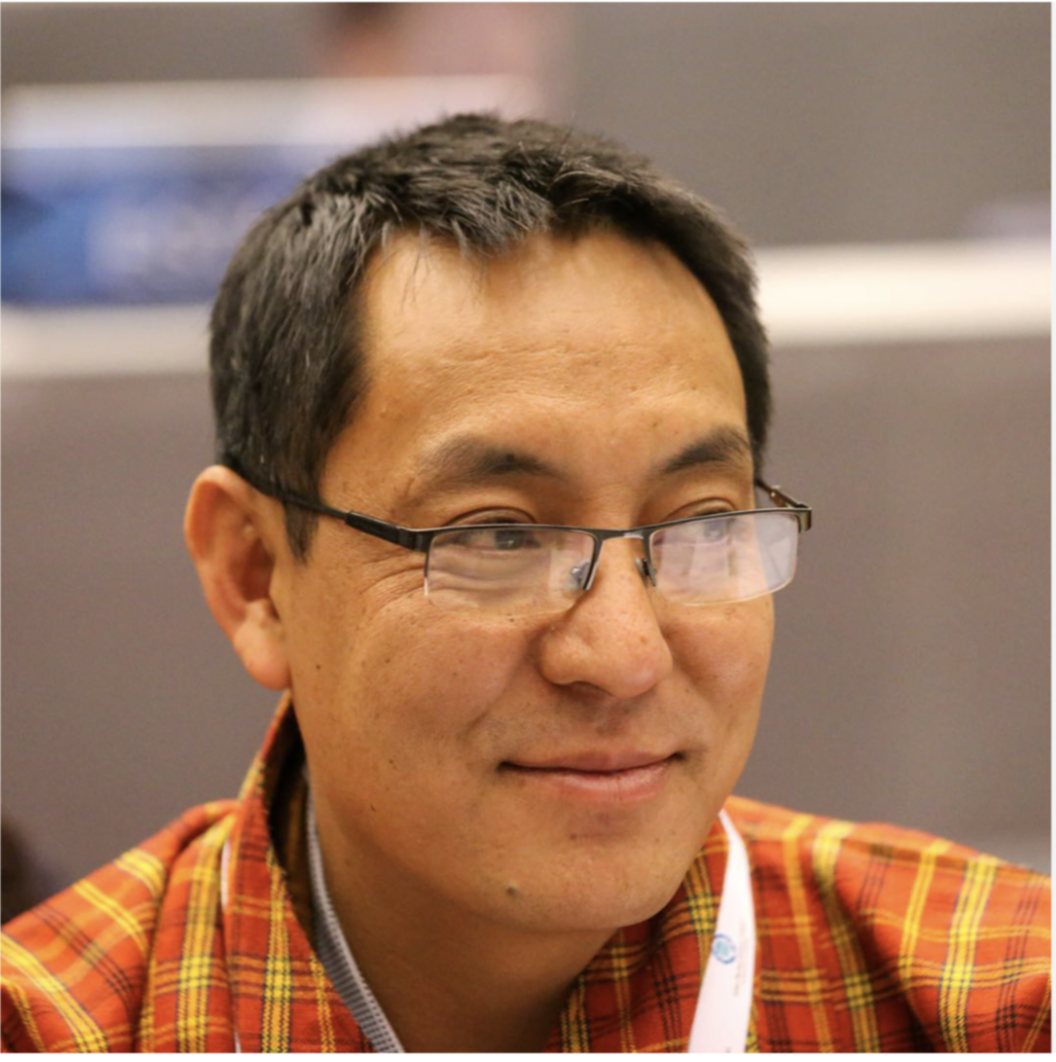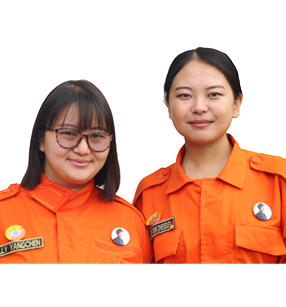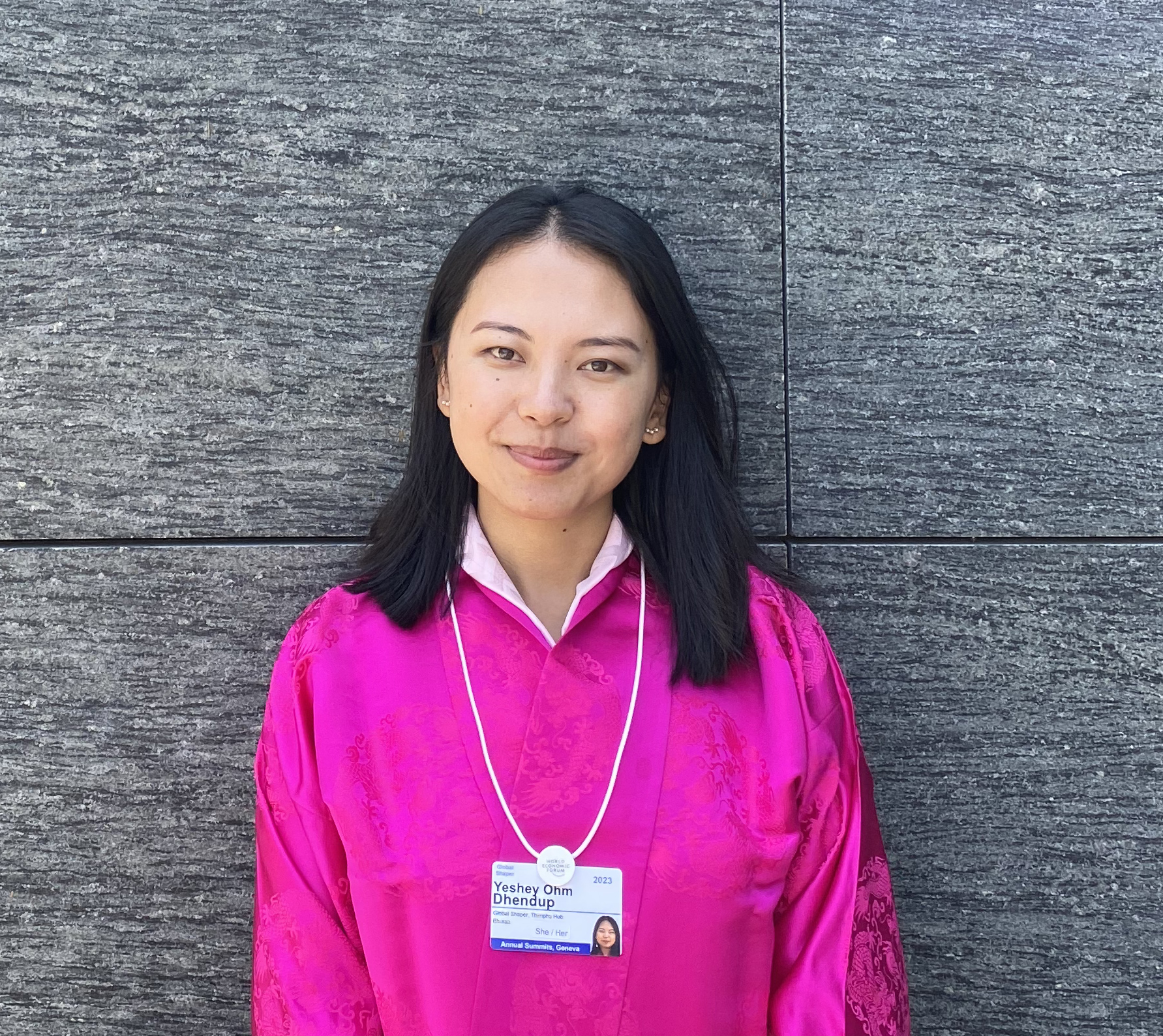The RIGSS Blog
To stimulate analysis, innovation, and forward thinking, and generate new ideas and insight
on subjects that matter in 21st Century Bhutan.
A humble tribute to celebrate learning, leadership and service that His Majesty The King continues to champion.
The views and opinions expressed in the articles on the RIGSS Blog are that of the authors and do not represent the views of the institute.
THE ROYAL ORDER OF BHUTAN TO INDIAN PRIME MINISTER NARENDRA MODI

Research Fellow, RIGSS
A historic cycle in Bhutan-India relations completes even as His Majesty The King, the Head of Bhutanese State conferred Nga-dag Pelgi Khorlo – Order of the Druk Gyalpo (Class I) - to Prime Minister Narendra Modi today, on 22 March 2024 in a special ceremony. Nearly seventy years ago, on 14 August 1954, President Rajendra Prasad, the Head of the Indian State conferred Padma Vibushan to the Late King, His Majesty Jigme Dorji Wangchuck (Timescontent.com, n.d.). The award of Padma Vibhushan was instituted in 1954, which means His Majesty Jigme Dorji Wangchuck was one of the early recipients. Unlike Nga-dag Pelgi Khorlo, which is the highest among the Royal Orders, the Padma Vibhushan comes after Bharat Ratna and is the second highest civilian award for distinguished public service. In the last seventy years, there were only 336 recipients of Padma Vibushan, of which twenty-one were non-Indians.
Nga-dag Pelgi Khorlo (Class II) was conferred for the first time in 2008 to Dr Frederik Paulsen, Chairman of Ferring Pharmaceuticals. Later in 2011, the Royal Grandmother Her Majesty Ashi Kesang Choeden Wangchuck and His Holiness the late Je Khenpo Tenzin Dendup became the first recipients of Class I of the same Royal Order (Zangmo, 2015). On 17 December 2019, His Holiness the Je Khenpo was also conferred the same honour. Prime Minister Modi thus becomes the fourth in order but the first foreign leader to receive it.
Before 2021, the year in which His Majesty announced the grant of the Royal Order, Prime Minister Modi had already received the highest honours from seven other nations: Saudi Arabia, Afghanistan, Palestine, United Arab Emirates, Russia, Maldives and the United States. Bahrain conferred the third highest honour. Last year alone, Prime Minister Modi received five more honours: from Fiji, Papua New Guinea, Egypt, France and Greece. The Greek honour was the second-highest civilian award. In a short span of time, Prime Minister Modi had received honours from thirteen nations (ABP News Bureau, 2023). However, they were not conferred to him for the first time. There were other foreign leaders and dignitaries who were conferred before him. In the case of Nga-dag Pelgi Khorlo, he became the first foreign recipient. This is what makes the event special and historic! The only other instance where a Prime Minister of India was conferred the Royal Orders of Bhutan was in 1985. His Majesty The Fourth King awarded the Druk Wangyal to Prime Minister Indira Gandhi posthumously during the visit of Prime Minister Rajiv Gandhi to Bhutan (Ura, 2010, p.106).
The successive kings of Bhutan have nurtured and strengthened Bhutan’s relationship with India. The conferring of medals to Indian leaders and nationals has been an important expression of royal recognition for individuals who played significant roles in it. As of 2021, more than 56 per cent of the foreign recipients of various Royal Orders of Bhutan were Indians. Besides Prime Minister Modi and Prime Minister Indira Gandhi, three ambassadors and a senior diplomat received the Royal Orders. Ten Indians received the prestigious honour of Druk Thuksey out of the fourteen conferred to foreign nationals. Likewise, eleven Indians from a total of twenty-seven foreigners received the National Order of Merit (Gold). Three out of four foreigners to receive the Silver medal were Indians. Again, the only two foreigners to receive the Bronze medal were also Indians.
The conferring and receiving of medals have been an important instrument for the pursuit of foreign policies by many countries. Bhutan too has pursued this as early as the beginning of the last century. It began when the British in India conferred the Knight Commander of the Indian Empire (KCIE) to His Majesty Gongsa Ugyen Wangchuck in 1905 (McKay, 2004, p. 140). His Majesty reciprocated this diplomatic gesture in 1909. To mark the historic founding of the monarchy in 1907, 130 Coronation medals were commissioned at a cost of Rs. 2,555. Known as Druk Nor, there were seven gold, 120 silver and three bronze medals. Five of the gold medals were granted to various British personalities (Tshering, 2023). Sir Charles Bell, the British Political Officer received it at Punakha in 1910 when the Treaty of Punakha was signed. Through him, four other medals were sent to AW Paul, Sir JC White, Col. Francis Younghusband and General MacDonald. Later, Col. Younghusband donated this gold medal along with other medals awarded by the four Geographical Societies of London to the Chancellor of the Exchequer to help raise funds for World War II (French, 1995, p. 384). The other two gold medals were granted to the young Gyalsey Jigme Wangchuck and Gongzim Ugyen Dorji.
Perhaps the British felt the need to reciprocate this and balance a symbolic equation that tiny Bhutan presumably altered when its monarch presented medals to representatives of the largest empire on earth. Thus they presented two more medals to Gongsa Ugyen Wangchuck in 1911, Knight Commander of the Star of India (CSI) and a Gold Medal during Delhi Durbar. He had undertaken the visit to Delhi to meet the Prince of Wales, who later became King George V. In this historical context, we can appreciate the 2016 visit of William, the Prince of Wales and future King of the United Kingdom to Bhutan. In 1922, the British presented another medal - Knight Grand Commander of the Indian Empire (GCIE) (Mckay, 2004, p.145).
To mark the enthronement of His Majesty Jigme Wangchuck in 1926, the British presented the Companion of the Indian Empire the following year. This was also an important diplomatic act of British recognition of His Majesty’s succession. In 1930, another medal – KCIE – was also presented. The context in which this happened is not known. But the British sent its last Political Officer, Hopkinson, based in Sikkim to present another honour, CSI, in 1947. His Majesty travelled all the way to Haa to meet the British delegation as it was their last mission before leaving India (Croston, 2006, p. 158). We do not have any record of His Majesty Jigme Wangchuck reciprocating the British diplomatic gestures but it is not impossible as he closely followed his father’s footsteps in dealing with the British. For example, he donated Nu.100,000 in 1939 to the British war effort just as Gongsa Ugyen Wangchuck had donated Nu.200,000 in 1914 during the First World War (Kinga, 2009, pp. 197-201).
The Government of Bangladesh accorded the Liberation War Honour posthumously to His Majesty Jigme Dorji Wangchuck (Tshewang, 2012). The honour came in 2012, which was forty years after his demise. Nonetheless, it was a significant moment to register the gratitude of the government of Bangladesh to His Majesty as Bhutan became the first country to accord recognition for the independence of Bangladesh.
His Majesty Jigme Singye Wangchuck has also been conferred significant honours. The first came from Japan: Collar of the Supreme Order of the Chrysanthemum in 1987. Japan would further recognise His Majesty’s leadership in conservation by being inducted into the Kyoto Hall of Fame in 2011 and then presenting the 2022 honour of Blue Planet Laureate. The neighbouring Kingdom (then) of Nepal presented the honour of Member of the Most Glorious Order of the Benevolent Ruler in 1988. In 1990, His Majesty received two honours from the Middle East. The one from Kuwait was the Order of Mubarak the Great and the other from Bahrain was the Order of Khalifa. Bhutan shares a very special relationship with the Kingdom of Kuwait. During the Gulf War, Bhutan was the last country to close its embassy in the face of Iraqi invasion and the first to re-open it soon after the liberation of Kuwait. Bhutan and Bahrain became members of the United Nations on the same day along with Qatar. In 1994, His Majesty received the Royal Order of the Seraphim from Sweden (Wikipedia, 2024). It was a historic moment when King Carl XVI Gustav and Queen Silvia of Sweden visited Bhutan in 2016.
His Majesty The King has been offered the honour of Knight Grand Cross of the Most Illustrious Order of Queen Salote Tupou III in 2010 by the King of Tonga. In 2019, His Majesty also accepted UNDP’s Special Recognition Award (Wangmo, 2019). It was only the second time that UNDP had presented such an award, the first being to the late king of Thailand, His Majesty Bhumibol Adulyadej, in 2006.
Viewed in this larger historical context, we can appreciate the deep significance of the conferring of Nga-dag Pelgi Khorlo to Prime Minister Modi. This event also takes place within a very special context. It happens during Prime Minister Modi’s third visit to Bhutan. No other Prime Minister has visited Bhutan as much. To reflect the importance of India’s relationship with Bhutan, Prime Minister Modi made Bhutan the first destination of his foreign visit after his first election victory in 2014. This happened just three weeks after he was sworn in as the Prime Minister. Now, he is back again despite the fact that the election process in India has been set in motion, and the tenure of the Lok Sabha ends in less than three months, i.e. on 16 June 2024. The present visit is also the second during his current term. It marks the high point of the bilateral relationship between Bhutan and India and the royal recognition of Prime Minister Modi’s personal contribution and support for Bhutan.
References
ABP News Bureau. (2023, June 25). PM Modi Conferred With 13 International Awards In Last 9 Years. Abp Live. Retrieved March 20, 2024, from https://news.abplive.com/news/india/pm-modi-award-list-last-9-years-pm-narendra-modi-international-awards-order-of-the-nile-complete-list-1611390
Croston, R. (2006). Eleanor Hopkinson (105-2007). Bulletin of Tibetology, 42(1 & 2). https://himalaya.socanth.cam.ac.uk/collections/journals/bot/pdf/bot_2006_01-02_obituary2.pdf
French, P. (1994). Younghusband: The last great imperial adventurer. Flamingo. imperial adventurer. Flamingo: London
Kinga, S. (2007). Polity, Kingship and Democracy: A biography of the Bhutanese state. Ministry of Education.
McKay, A. (2004). British-Indian Medical Service Officers in Bhutan, 1905-1947: A historical outline. In K. Ura & S. Kinga (Eds.), The Spider and the Piglet: Proceedings of the First Seminar on Bhutan Studies. Centre for Bhutan Studies.
Timescontent.com. (n.d.). Padma Vibushan. https://timescontent.timesgroup.com/photo/news/Padma-Vibhushan/493182. Retrieved March 19, 2024, from https://timescontent.timesgroup.com/photo/news/Padma-Vibhushan/493182
Tshering, S. (2023, December 15). First King’s Coronation Medals on display at Royal Heritage Museum, Trongsa. BBS. Retrieved March 20, 2024, from https://www.bbs.bt/news/?p=195918#:~:text=Residents%20in%20Trongsa%20had%20the,for%20the%20upcoming%20National%20Day.
Tshewang, Y. (2012, March 31). Third Druk Gyalpo honored by Bangladesh. The Bhutanese. Retrieved March 20, 2024, from https://thebhutanese.bt/third-druk-gyalpo-honored-by-bangladesh/
UNDP honours His Majesty The King. (2019, March 14). Kuensel. Retrieved March 20, 2024, from https://kuenselonline.com/undp-honours-his-majesty-the-king/
Ura, K. (2010). Leadership of the wise: Kings of Bhutan. Thimphu: Karma Ura.
Wangmo, D. (2019, March 13). UNDP presents His Majesty the King of Bhutan a Special Award of Recognition. UNDP. Retrieved March 20, 2024, from https://www.undp.org/press-releases/undp-presents-his-majesty-king-bhutan-special-award-recognition
Wikipedia. (2024, March 11). Jigme Singye Wangchuck. Retrieved March 20, 2024, from https://en.wikipedia.org/wiki/Jigme_Singye_Wangchuck
Zangmo, T. (2015, April 4). The Bhutanese Roll of Honours. Kuensel. Retrieved March 20, 2024, from https://kuenselonline.com/the-bhutanese-roll-of-honours/
TOWARDS A DEVELOPED GNH COUNTRY

Research Officers, RIGSS
SHENZHEN SPECIAL ECONOMIC ZONE

Research Officer
